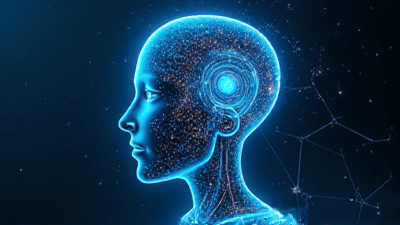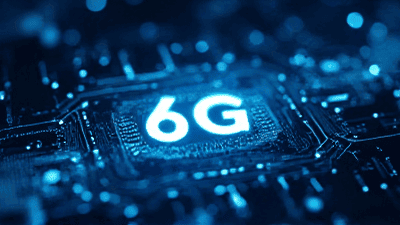
In recent years, the concept of smart cities has gained tremendous traction, fueled by the rapid advancements in technology and the increasing need for sustainable urban development. A cornerstone of the smart city paradigm is the Internet of Things (IoT), a network of interconnected devices that communicate and share data to enhance the efficiency and quality of urban life.
Understanding IoT
What is the Internet of Things?
The Internet of Things refers to the interconnection of everyday objects and devices to the internet, enabling them to send and receive data. This technology encompasses a wide range of devices, including sensors, smart appliances, and wearable technology. By leveraging real-time data collection and analysis, IoT enables improved decision-making and automation across various applications.
Key Features of IoT
-
Connectivity: IoT devices can connect to the internet and communicate with each other, creating a networked environment that facilitates data exchange.
-
Real-Time Data: IoT devices continuously collect and transmit data, providing real-time insights that can inform decision-making processes.
-
Automation: Many IoT systems can automate processes based on data analysis, reducing the need for human intervention and increasing operational efficiency.
-
Scalability: IoT systems can be easily scaled to accommodate additional devices and applications, making them flexible and adaptable to evolving urban needs.
The Importance of Smart Cities
What Defines a Smart City?
A smart city leverages technology, particularly IoT, to improve urban services and enhance the quality of life for residents. Key characteristics of smart cities include:
-
Efficient Infrastructure: Smart cities utilize data-driven approaches to optimize infrastructure management, reduce operational costs, and improve resource allocation.
-
Sustainable Practices: Smart urban planning incorporates sustainable practices that promote energy efficiency, waste reduction, and environmental preservation.
-
Enhanced Quality of Life: By addressing urban challenges through technology, smart cities aim to create safer, more accessible, and more connected communities.
Benefits of Smart Cities
-
Improved Public Services: Smart cities enhance the quality of public services through better resource management and real-time data analysis.
-
Increased Citizen Engagement: Technology fosters transparency and engagement between citizens and local governments, allowing residents to participate in decision-making processes.
-
Economic Growth: By attracting businesses and fostering innovation, smart cities can drive economic development and job creation.
-
Environmental Sustainability: The integration of IoT and sustainable practices contributes to reduced carbon footprints and improved urban ecosystems.

The Role of IoT in Smart Cities
IoT technology is pivotal in the development of smarter cities, facilitating a wide array of applications that enhance urban living. Below are some of the key areas where IoT is making a significant impact:
1. Smart Transportation
One of the most significant challenges facing cities today is traffic congestion. IoT solutions can help alleviate this issue through the following applications:
-
Traffic Management Systems: IoT sensors and cameras can monitor real-time traffic conditions, providing data to optimize traffic flow and reduce congestion. Smart traffic signals can adjust in real-time based on vehicle density, improving overall traffic efficiency.
-
Public Transportation: IoT-enabled systems can enhance public transportation by providing real-time tracking of buses and trains, allowing passengers to plan their journeys more effectively. This transparency can lead to increased ridership and reduced reliance on personal vehicles.
-
Smart Parking Solutions: IoT devices can monitor parking availability in real-time, guiding drivers to vacant spots and reducing the time spent searching for parking. This strategy not only eases congestion but also enhances the overall urban experience.
2. Energy Management
The efficient use of energy is crucial for building sustainable smart cities. IoT plays a significant role in managing energy consumption through:
-
Smart Grids: IoT technology enables the creation of smart electrical grids that monitor energy usage and adjust supply in real-time. This capability allows for better integration of renewable energy sources and improves grid resilience.
-
Smart Buildings: IoT sensors can optimize energy consumption in buildings by monitoring occupancy and environmental conditions, automatically adjusting heating, cooling, and lighting systems. This optimization leads to reduced energy costs and enhanced comfort for occupants.
-
Renewable Energy Integration: IoT devices can monitor and manage energy generation from renewable sources like solar panels and wind turbines, ensuring efficient energy distribution and usage.
3. Waste Management
Effective waste management is essential for maintaining clean and sustainable urban environments. IoT applications can enhance waste management systems through:
-
Smart Waste Bins: Equipped with sensors, smart waste bins can monitor fill levels and send notifications to waste management services when they need to be emptied. This efficiency reduces the number of collection trips, saving fuel and resources.
-
Waste Sorting: IoT technology can aid in automated waste sorting, improving recycling processes. Sensors can identify different types of waste and separate them for appropriate disposal or recycling.
4. Public Safety and Security
The integration of IoT in public safety can lead to safer urban environments through:
-
Surveillance Systems: IoT-enabled cameras and sensors can monitor public spaces, providing real-time data to law enforcement and emergency services. This technology aids in crime prevention and facilitates faster response times during emergencies.
-
Disaster Management: IoT devices can help monitor environmental conditions, such as air quality and natural disasters like floods or earthquakes. This data can inform disaster response strategies and protect citizens' safety.
5. Healthcare Services
Smart cities can leverage IoT technology to improve healthcare delivery and public health outcomes:
-
Telemedicine and Remote Monitoring: Wearable health devices can continuously monitor patients' vital signs and send data to healthcare providers. This capability allows for timely interventions and better management of chronic conditions.
-
Public Health Monitoring: IoT sensors can track environmental factors that impact public health, such as air quality and pollen levels. This data can inform public health initiatives and raise awareness of health risks.
6. Smart Agriculture
Urban agriculture can benefit from IoT solutions, promoting sustainable food production in city environments:
-
Precision Farming: IoT devices can monitor soil conditions, water usage, and crop health, enabling farmers to optimize resource use and maximize yields.
-
Vertical Gardens: In urban settings, IoT technology can facilitate the management of vertical gardens and hydroponic systems, contributing to local food production and reducing transportation emissions.
Challenges in Implementing IoT for Smart Cities
Despite its immense potential, the implementation of IoT in smart cities faces several challenges:
1. Data Privacy and Security
The proliferation of IoT devices raises concerns about data privacy and security. Ensuring the protection of sensitive information is critical, as breaches can compromise the safety of individuals and the integrity of city systems.
2. Interoperability
The vast array of IoT devices and platforms can create compatibility issues. Standardization and interoperability are essential for ensuring that different systems can communicate effectively.
3. Infrastructure Costs
Building a smart city requires significant investment in infrastructure, including the installation of IoT devices, connectivity, and data management systems. Securing funding and developing a comprehensive implementation plan can be challenging.
4. Public Acceptance
For smart city initiatives to be successful, public acceptance and engagement are critical. Educating citizens about the benefits and addressing concerns about privacy and transparency are essential steps in building support for IoT initiatives.
The Future of IoT in Smart Cities
As technology continues to advance, the role of IoT in smart cities will expand, creating new possibilities for urban living:
1. Enhanced AI Integration
The integration of artificial intelligence with IoT will enable smarter analytics and more sophisticated decision-making processes. AI can analyze vast amounts of data collected by IoT devices to identify trends and optimize urban services.
2. Urban Mobility Solutions
The future of urban mobility will rely heavily on IoT technology. Connected vehicles and smart traffic systems will transform how people move within cities, leading to more sustainable and efficient transportation options.
3. Comprehensive Data Ecosystems
Smart cities will likely develop comprehensive data ecosystems that integrate data from various sources, including IoT devices, social media, and community feedback. This holistic approach will provide deeper insights into urban challenges and guide decision-making processes.
4. Focus on Sustainability
With the growing emphasis on sustainability, IoT applications will increasingly prioritize environmental impact. Smart cities will leverage IoT to optimize resource use, reduce emissions, and create healthier urban environments.
Conclusion
The role of IoT in building smarter cities is crucial for addressing the complex challenges of urbanization. By improving transportation, energy management, waste disposal, public safety, healthcare, and agriculture, IoT technology can transform urban living and enhance the overall quality of life for residents.
While challenges remain, the potential benefits of IoT are profound. As cities embrace these technologies and prioritize sustainability and innovation, they can create interconnected environments that foster economic growth, enhance public services, and promote citizen engagement. The journey toward smarter cities is just beginning, and with the power of IoT, a more connected and sustainable future awaits.



